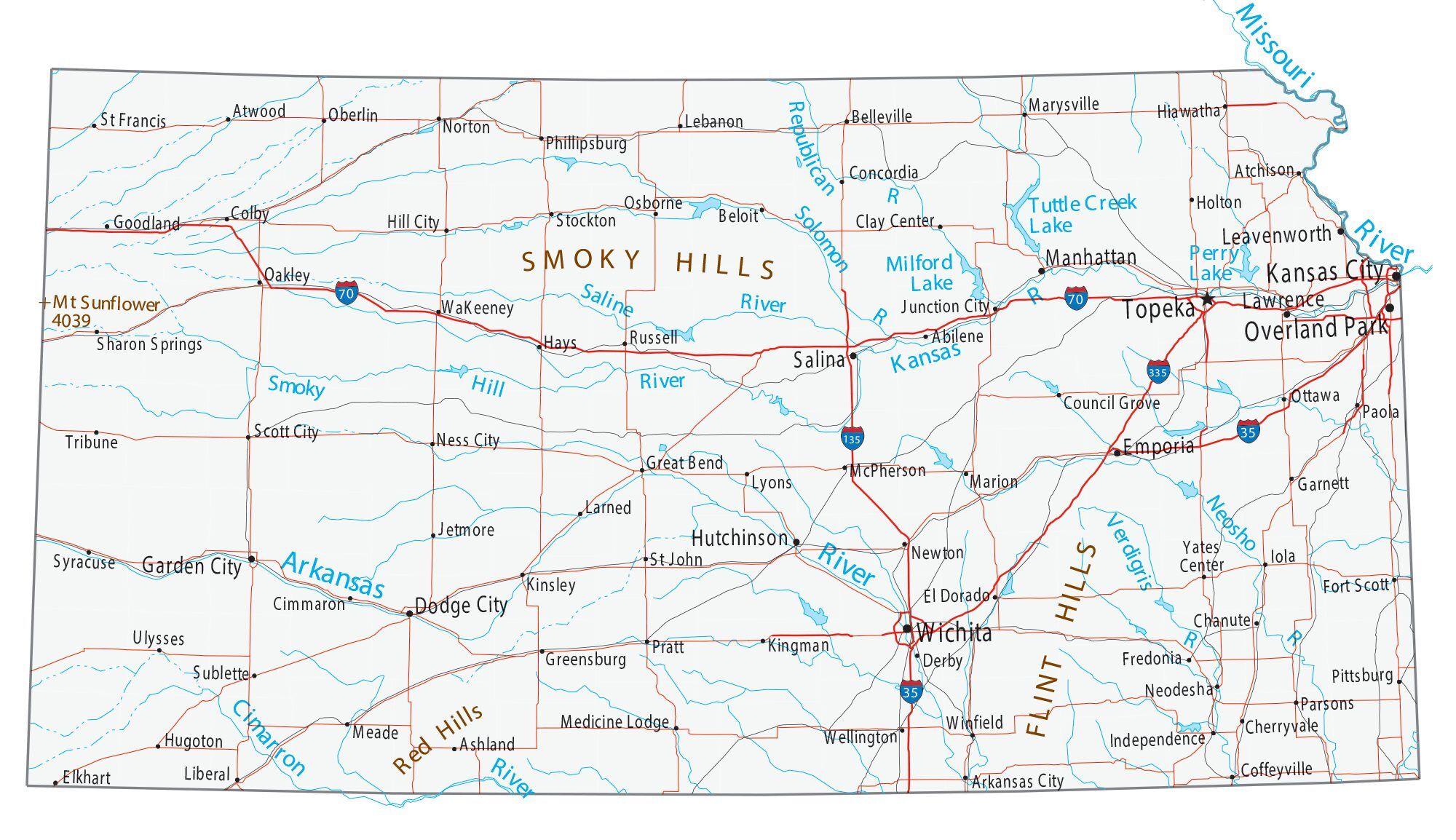Kansas, located in the center of the United States, is a state known for its rich agricultural heritage, vast plains, and important roles in American history. Often known as the "sunflower state", Kansas is characterized by its broad landscape, large sky, and small town attractions. Its central place made it a major battleground during the pursuit of the Civil War, which earned this "Bleeding Kansas" surname. The abbreviation of Kansas is KS.
Today, Kansas plays a major role in the production of farming, especially wheat and cattle, which strengthens its economy and shapes its identity. This state is also home to diverse natural beauty from the Flint Hills to the Smoky Hill River, and provides a mixture of traditional values with modern innovation. With a strong sense of the community and a deep connection to the land, Kansas represents both the historical and developed spirit of the American Midwest.
Check Out: All About Hawaii: Check History, Map, Economy and Education

Source: World Map
Capital of Kansas
Source: NewKansas Flag
Topeka, the capital of Kansas, is situated in the northeast region of the state and sits on the Kansas River. The founding date of Topeka was in 1854, and it became the capital of the state in 1861 when Kansas was admitted to the Union.
In American history, Topeka is famous for the Supreme Court case Brown v. Board of Education (1954), where segregation in public schools was ruled unconstitutional.
Today, the political and administrative center of Kansas is Topeka, with the government offices and State Capitol, as well as the cultural, educational, and editorial opportunities that represent Topeka, largely based on its culture and heritage.
History of Kansas
Kansas, situated at the heart of the United States, has a rich and complex history. It was initially home to Native American tribes, such as the Kansa, Osage, and Pawnee. By way of the Louisiana Purchase in 1803, the area that became Kansas became a part of the United States.
Through the Kansas-Nebraska Act of 1854, settlers were to decide about slavery in Kansas, which led to violent clashes between pro- and anti-slavery groups, a time referred to as "Bleeding Kansas." Kansas entered the Union as a free state on January 29, 1861, just before the Civil War. At the close of the 19th century, Kansas had become central to the westward expansion of the United States. Railroads, cattle drives, and homesteading transformed the state into a prosperous economy.
Geography of Kansas
Kansas is situated in the middle of the United States, often referred to as the nation's geographic center. Kansas is characterized by wide, flat plains and gently rolling prairies, making it one of the nation's key agricultural areas.
The eastern part of the state has more hills, forests, and river valleys, while the western part of the state is transitioning to the High Plains, characterized by drier areas and higher elevations. Major rivers, including the Kansas River and the Arkansas River, shape the landscape and are integral to farming.
The climate reflects the transition from humid continental in the east to drier and semi-arid in the west between the Midwest and Great Plains.
Economy of Kansas
The economy of Kansas is diverse, with strong roots in agriculture, energy, and manufacturing. Known as the "Wheat State, " Kansas is a leading producer of wheat, corn, sorghum, and cattle. Agriculture drives much of the rural economy and contributes significantly to exports. In addition to farming, Kansas has a major presence in aerospace manufacturing, particularly in Wichita, which is known as the "Air Capital of the World."
The state also benefits from energy production, including oil, natural gas, and a growing wind energy sector. Kansas has a robust transportation network, supporting logistics and trade. Education, healthcare, and government are key employers across the state.
While urban centers like Wichita, Topeka, and Kansas City support industry and services, rural areas focus on farming and energy. Overall, Kansas maintains a stable and productive economy, balancing traditional industries with innovation and sustainability efforts.
Education in Kansas
Education in Kansas is overseen by the Kansas State Department of Education and emphasizes strong public school systems across its 286 school districts. The state offers free 12 education and supports various early childhood programs. Kansas is known for its commitment to academic standards and teacher quality.
It also has a robust higher education system, including major public universities like the University of Kansas and Kansas State University, as well as community colleges and technical schools. Kansas promotes career and technical education to support workforce development.
While rural schools face challenges such as declining enrollment, the state continues to invest in technology, school safety, and equitable access to quality education for students across both urban and rural communities.
Comments
All Comments (0)
Join the conversation